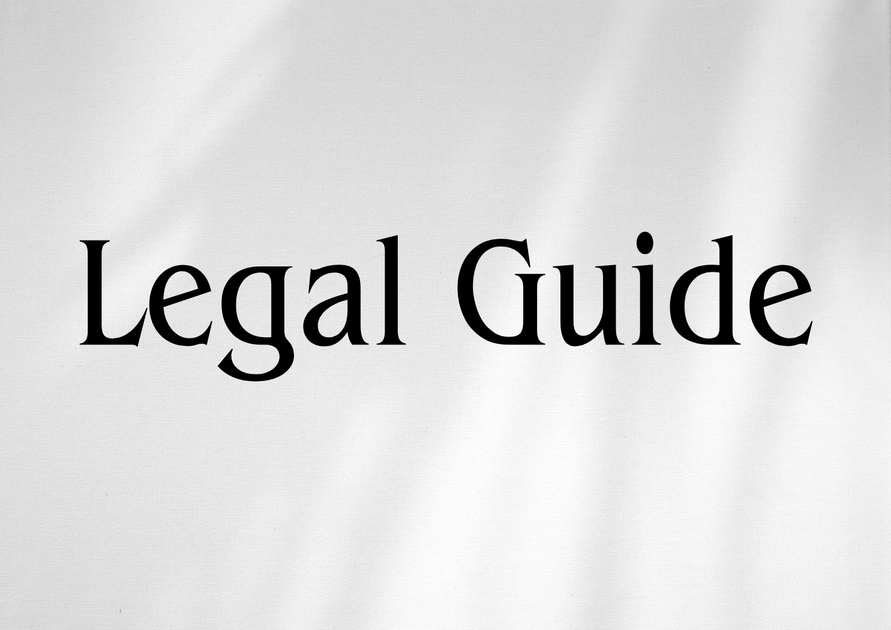Introduction
Arbitration has become a cornerstone of dispute resolution in the United Arab Emirates, reflecting the nation’s commitment to fostering a business-friendly, globally competitive legal environment. With sweeping reforms introduced through Federal Law No. 6 of 2018 on Arbitration and ongoing updates into 2025, understanding the nuances of arbitration procedure and the appointment of arbitrators is crucial for businesses, executives, and legal practitioners operating in the UAE. The continued evolution of the legislative framework, including the influence of Cabinet Decision No. 57 of 2018 and parallel ministerial guidelines, emphasizes the UAE’s ambition to be the preferred arbitration hub in the Middle East. This article delivers a comprehensive, consultancy-grade analysis of the statutory landscape, procedural intricacies, and strategic considerations that surround arbitration in the UAE’s rapidly changing business climate. We focus on real-world implications, compliance priorities, and best practices for organizations navigating this vital arena.
Table of Contents
- Overview of UAE Arbitration Law
- Legal Framework and Key Sources
- Arbitration Procedure: Step-by-Step Analysis
- Appointment of Arbitrators: Legal and Practical Aspects
- Comparative Analysis: Old vs. New Laws
- Case Studies and Practical Scenarios
- Risks of Non-Compliance and Compliance Strategies
- Suggested Visuals and Tables
- Conclusion and Forward-Looking Guidance
Overview of UAE Arbitration Law
Arbitration in the UAE: Strategic Importance
Over the last decade, arbitration has gained exceptional prominence in the UAE, serving both onshore and free zone jurisdictions. The principal law governing arbitration is Federal Law No. 6 of 2018 on Arbitration (the “UAE Arbitration Law”). This statute modernizes and aligns UAE arbitration with international best practices, drawing upon the UNCITRAL Model Law. As business entities increasingly include arbitration clauses in contracts, understanding process intricacies is critical for preserving legal and commercial interests. The law is regularly referenced in the Ministry of Justice Advisory Database and sets a high bar for procedural fairness, party autonomy, and enforceability of awards. Recent updates for 2025 emphasize digitalization, speed, and transparency.
Why Arbitration Procedure and Appointment Matter in 2025
Arbitration outcomes are shaped not only by the substantive law but by the procedure and the individuals entrusted as arbitrators. Errors in the appointment process or procedural missteps can undermine enforceability—or even derail cases entirely. For cross-border investors, multinational companies, and local businesses, the 2025 legal reforms make strict compliance urgent, particularly as enforcement standards become more rigorous and technology transforms service and documentation.
Legal Framework and Key Sources
Principal Legislation and Key Institutional Rules
The UAE arbitration regime is structured around several legal sources:
- Federal Law No. 6 of 2018 on Arbitration (UAE Arbitration Law)
- Civil Procedures Law (Federal Law No. 11 of 1992, as amended)
- Cabinet Decision No. 57 of 2018 (implementing various transitional and procedural provisions)
- Ministerial Circulars, e.g. Ministry of Justice Circular on Electronic Arbitration Filings (2023-2025)
- Relevant Institutional Arbitration Rules (e.g. DIAC 2022 Rules, ADCCAC, ICC UAE Chapter, DIFC-LCIA)
These instruments are regularly cited on the UAE Government Portal and Ministry of Justice websites.
Key 2025 Updates and Interpretive Changes
Looking ahead to 2025, the UAE is implementing further reforms to enhance the digital transformation of arbitration, clarify arbitrator appointment timelines, and strengthen screening standards for impartiality and independence. For corporate clients, this means that documentation, notifications, and procedural decisions must increasingly align with electronic platforms and updated ministerial protocols.
Arbitration Procedure: Step-by-Step Analysis
1. Initiation: Arbitration Agreement and Filing
Under Article 4 of the UAE Arbitration Law, arbitration must be based on a valid written arbitration agreement. This can be embedded in the main contract or provided by reference. The agreement must specify or reference the rules for appointment and procedures. Traditionally, parties notify their intent to commence arbitration via registered mail; however, digital notification is increasingly accepted (Ministerial Circular, 2023).
2. Constitution of Arbitral Tribunal
Article 9 of the Arbitration Law details the formation of the tribunal. Unless otherwise agreed, the default is three arbitrators, with each party nominating one and the two nominees appointing a presiding arbitrator. If parties cannot agree, the relevant appointing authority—typically the chosen institution or, in ad hoc processes, the UAE courts—will determine the composition.
3. Preparatory Procedural Meeting
Following the appointment, a preliminary meeting is convened where procedures, timelines, and administrative issues are set. Parties may request expedited procedures or interim relief, subject to conditions specified in the agreement or chosen rules.
4. Submission of Statements and Evidence
Both sides are required to submit their statements of claim and defense within prescribed timeframes (Articles 23-24). New in 2025: parties must upload all supporting evidence to the designated electronic portal of the institution or designated authority, aligning with Ministry of Justice digital standards.
5. Hearings and Witness Examination
The tribunal arranges hearings—which can be in-person, virtual, or hybrid—depending on the agreement and complexity. Witnesses may be examined, and expert evidence introduced. Under Article 33, the tribunal exercises full discretion over the conduct of proceedings, balanced by party rights to equality and due process.
6. Issuing the Award
The award must be delivered within the deadline set by parties or, failing that, within six months of the tribunal’s constitution (Article 42). 2025 reforms clarify permissible extensions and the mandatory use of secure electronic signatures and seals where electronic awards are issued.
7. Enforcement and Setting Aside
Under Article 54, arbitral awards are directly enforceable in UAE courts, provided certain formalities are observed (e.g., certified copies, Arabic translations, proof of notification). Challenges to awards are narrowly circumscribed and must be raised within thirty days on specific grounds. For offshore cases, enforcement proceeds via “foreign judgments” under the Civil Procedures Law and relevant international conventions (e.g., New York Convention 1958).
Appointment of Arbitrators: Legal and Practical Aspects
Statutory Requirements and Criteria
Proper appointment of arbitrators is essential for the validity and integrity of the arbitral process. Article 10 of the UAE Arbitration Law prescribes the following conditions:
- Arbitrators must be a natural person with full legal capacity.
- No restrictions based upon nationality unless otherwise stipulated.
- They must be independent, impartial, and free from conflicts of interest.
- They may not be a board member or employee of any party to the arbitration.
Cabinet Decision No. 57 of 2018 further clarifies screening procedures, including mandatory disclosure forms and compliance with applicable codes of ethics promulgated by arbitration institutions.
Procedures for Appointment and Replacement
- Party Autonomy: Parties are free to specify the number, qualifications, and method of selection in their agreement.
- Default Procedures: Absent agreement, the law defaults to three arbitrators, with appointments as outlined above.
- Court and Institutional Involvement: If parties or co-arbitrators cannot agree, the relevant court or institution will appoint to avoid deadlock.
- Challenging Arbitrator Appointment: Parties may object to arbitrators for justifiable doubts as to impartiality (Article 12). Strict time limits apply for challenges and replacements.
- Replacement: In case of resignation, death, or removal, a substitute is appointed following the original procedure.
Comparative Analysis: Old vs. New Laws
The table below highlights the critical differences between the pre-2018 regime, current laws, and anticipated 2025 updates regarding arbitration procedure and arbitrator appointment.
| Aspect | Pre-2018 (Civil Procedures Law) | Federal Law No. 6 of 2018 (Current) | 2025 Updates |
|---|---|---|---|
| Arbitration agreement | Limited recognition; formalities strictly applied | Expansive definition; acceptance of electronic agreements | Mandatory e-filing; digital authentication protocols |
| Appointment of arbitrators | No detailed criteria; court intervention frequent | Clear eligibility, independence requirements; default appointment rules | Additional digital registration; public arbitrator disclosure database |
| Procedural flexibility | Restricted; aligned with court procedure | Parties & tribunal set procedures; increased autonomy | Mandatory digital timelines and paperless procedures |
| Challenges and removal | Unclear grounds, ad hoc removal | Specified challenge procedure, formal grounds | Automated challenge notification and audit trail |
| Enforcement | Indirection, post-award lawsuits common | Direct enforcement of awards by UAE courts | e-Award portals, expedited electronic enforcement |
Case Studies and Practical Scenarios
Case Study 1: Technology Supplier and Mainland Contractor
Background: A global IT provider and a UAE-based contractor entered a turnkey supply contract with an arbitration clause referencing the DIAC Rules. A dispute arose over project delays.
Challenges and Lessons: The contractor sought to challenge the presiding arbitrator on the ground of undisclosed prior commercial dealings. Under Article 12, the institution reviewed the challenge. The process, streamlined by DIAC’s digital submission portal, ensured resolution within three weeks. The IT provider was able to rely on a robust, digital audit trail to defend against bad faith tactics.
Analysis: This scenario emphasizes the importance of full arbitrator disclosure, as well as the practical benefits of digital filings and expedited timelines under recent reforms.
Case Study 2: Real Estate JVC Inside a Free Zone
Background: A real estate joint venture company, headquartered in DIFC, mistakenly nominated a former in-house counsel as sole arbitrator under an ad hoc agreement. The counterparty objected, citing lack of independence.
Outcome: DIFC-LCIA rules and the Arbitration Law’s Article 10 led to the disqualification. The court promptly appointed an independent arbitrator, reinforcing the need to respect clear statutory requirements for impartiality and capacity.
Analysis: Even in free zones, UAE arbitration statutes apply as default unless parties specifically opt out and comply with local rules. Non-compliance with procedural or appointment requirements results in wasted costs and time.
Risks of Non-Compliance and Compliance Strategies
Key Risks of Non-Compliance
- Setting Aside Awards: Failure to adhere to procedural rules or improper appointment of arbitrators are among the few grounds UAE courts will accept for setting aside awards (Article 53).
- Delays and Cost Penalties: Non-conforming notifications, late filings, or improper evidence can cause delays, repetition of hearings, or monetary sanctions imposed by arbitral institutions.
- Loss of Enforceability: Awards may be rendered unenforceable if arbitrator disclosures, independence, or authentication requirements are not strictly respected.
- Regulatory Investigations: The Ministry of Justice may review arbitral appointments for compliance under new anti-conflict-of-interest initiatives.
Best Practice Compliance Strategies for 2025
| Risk Area | Best Practice |
|---|---|
| Arbitration Agreement Drafting | Use model clauses from leading institutions (e.g., DIAC 2022); clearly specify appointment mechanism, seat, and language. |
| Notification and Filing | Utilize digital filing platforms; preserve certified receipts; comply with statutory timelines for submissions and arbitrator challenges. |
| Selection and Due Diligence on Arbitrators | Vet arbitrator profiles for independence and conflicts; document all disclosures; use only eligible professionals listed with approved institutions or the MOJ. |
| Procedural Timelines | Adopt automated project management tools; assign legal teams to monitor compliance with procedural milestones. |
| Enforceability and Documentation | Ensure awards and supporting docs are certified, translated, and electronically submitted per new requirements. |
| Audit and Record-Keeping | Maintain complete, digitized records through the life cycle of arbitration to facilitate challenge defense, regulatory reviews, and enforcement. |
Suggested Visuals and Tables
- Process Flow Diagram: A sequential diagram tracing the arbitration procedure, from agreement to enforcement—with digital filing icons for new 2025 requirements.
Alt text: UAE arbitration process flowchart showing procedural steps from initiation to award enforcement.
Caption: Arbitration procedure in the UAE: A visual journey from filing to enforceable award under updated 2025 rules.
Description: Step-by-step infographic depicting each phase of the UAE arbitration procedure, highlighting new digital, compliance, and appointment checkpoints, optimally designed for UAE law 2025 updates. - Comparison Table: As provided above—contrasting old, current, and anticipated future rules regarding appointment, procedure, and enforcement.
- Compliance Checklist: A downloadable table summarizing mandatory tasks, optimal practices, and electronic documentation steps for arbitration in 2025.
Conclusion and Forward-Looking Guidance
The UAE’s drive to cement itself as a world-class arbitration destination continues into 2025 with robust legal frameworks, cutting-edge digital processes, and heightened standards for procedural fairness. The precise application of arbitration laws and meticulous attention to the appointment of impartial, qualified arbitrators are now more critical than ever. For organizations, the key to leveraging these reforms lies in proactive contract drafting, diligent compliance with evolving procedural mandates, and prudent selection of qualified arbitrators. By embedding compliance into every stage—from agreement to enforcement—businesses can confidently resolve disputes and protect their interests.
Looking forward, as technology further transforms dispute resolution and regulatory oversight grows, legal teams and executives should closely monitor Ministry of Justice directives, institutional rules, and practical developments. Adopting a digital-first, compliance-centered approach will ensure successful navigation of the UAE’s dynamic legal landscape in 2025 and beyond. For tailored advice or a case-specific review of your arbitration clauses and policies, consulting with subject-matter experts and accredited legal advisors is strongly recommended.



